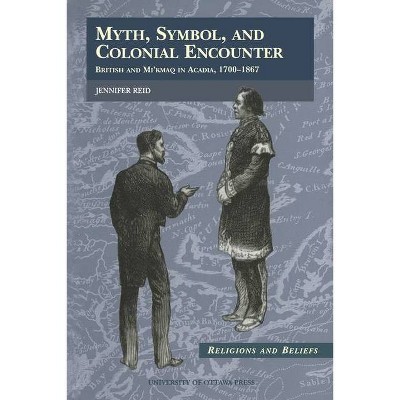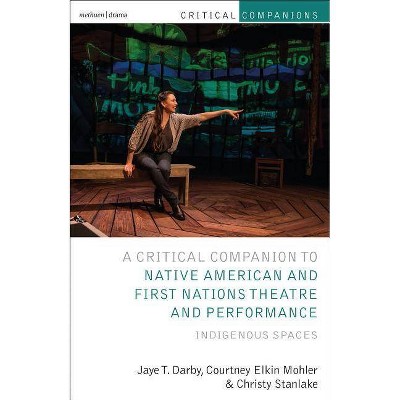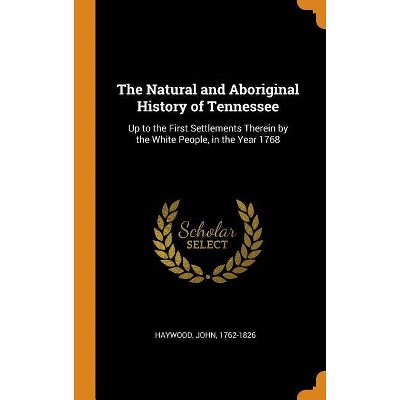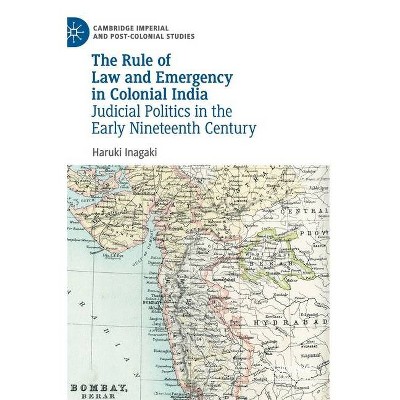Aboriginal Dreaming Paths and Trading Routes - (First Nations and the Colonial Encounter) by Dale Kerwin (Hardcover)
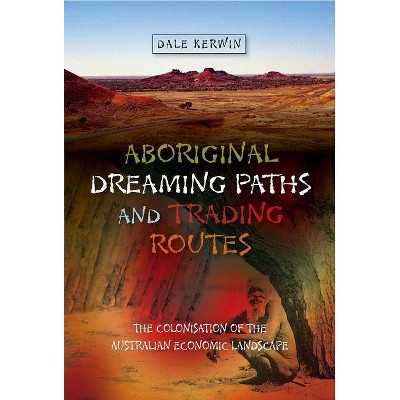
Similar Products
Products of same category from the store
AllProduct info
<p/><br></br><p><b> About the Book </b></p></br></br>The dreaming paths of Aboriginal nations - paths that crossed the Australian landscape - formed major ceremonial routes along which goods and knowledge flowed. These became the trade routes that crisscrossed Australia and transported religion and cultural values. This book highlights the valuable contribution Aboriginal people made in assisting European explorers, surveyors, and stockmen to open the country for colonization, and it explores the interface between Aboriginal possession of the Australian continent and European colonization and appropriation. Instead of positing a radical disjunction between cultural competencies, the book considers how European colonization of Australia appropriated Aboriginal competence in terms of the landscape: by tapping into culinary and medicinal knowledge, water and resource knowledge, hunting, food collecting, and path-finding. As a consequence of this assistance, Aboriginal dreaming paths and trading routes also became the routes and roads of the<p/><br></br><p><b> Book Synopsis </b></p></br></br>The dreaming paths of Aboriginal nations - paths that crossed the Australian landscape - formed major ceremonial routes along which goods and knowledge flowed. These became the trade routes that crisscrossed Australia and transported religion and cultural values. This book highlights the valuable contribution Aboriginal people made in assisting European explorers, surveyors, and stockmen to open the country for colonization, and it explores the interface between Aboriginal possession of the Australian continent and European colonization and appropriation. Instead of positing a radical disjunction between cultural competencies, the book considers how European colonization of Australia appropriated Aboriginal competence in terms of the landscape: by tapping into culinary and medicinal knowledge, water and resource knowledge, hunting, food collecting, and path-finding. As a consequence of this assistance, Aboriginal dreaming paths and trading routes also became the routes and roads of the colonizers. Indeed, the European colonization of Australia owes much of its success to the deliberate process of Aboriginal land management practices. The book provides a social science context for the broader study of Aboriginal trading routes by providing an historic interpretation of the Aboriginal/European contact period. It scrutinizes arguments about nomadic and primitive societies, as well as romantic views of culture and affluence. These circumstances and outcomes are juxtaposed with evidence that indicates that Aboriginal societies are substantially sedentary and highly developed, capable of functional differentiation and foresight - attributes previously only granted to the European settlers. The hunter-gatherer image of Aboriginal society is rejected by providing evidence of crop cultivation and land management, as well as social arrangements that made best use of a hostile environment. Aboriginal Dreaming Paths and Trading Routes is essential reading for all those who seek to have a better knowledge of Australia and its first people. It inscribes Aboriginal people firmly in the body of Australian history. (Series: A Sussex Library of Study - First Nations and the Colonial Encounter)<p/><br></br><p><b> Review Quotes </b></p></br></br><br><p>"Kerwin (education, Griffith Univ., Australia) provides a valuable insider's account of Aboriginal history and engagement with Australian colonialism, with a core focus on historic land use patterns and cultural mapping and travel practices. The author sets out an effective (if somewhat polemical and occasionally overstated) argument emphasizing the need to rethink Aboriginal history in more nuanced terms than those (stereo)typically associated with classic anthropological and historical accounts of nomadic peoples and their "primitive level" of cultural, economic, and political development. The evidence compiled includes archival, ethnographic, and testimonial sources, as well as interviews with Aboriginal interlocutors. Highly recommended." --<i>Choice</i><br><p/><br></br><p><b> About the Author </b></p></br></br>Dr. Dale Kerwin is Aboriginal Research Fellow at Griffith University. His academic career has been driven by the need for a proper conversation between the colonisers' history and the first Australians' history. He began his journey to university through correspondence courses, whilst at the same time being taught by his Elders to engage with non-Aboriginal people with a view to continuing that conversation for the benefit of both communities.
Price History
Price Archive shows prices from various stores, lets you see history and find the cheapest. There is no actual sale on the website. For all support, inquiry and suggestion messagescommunication@pricearchive.us
